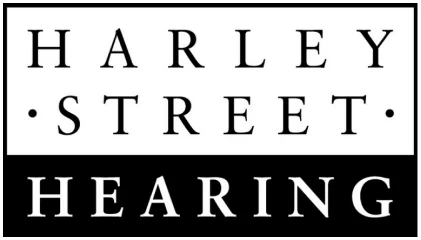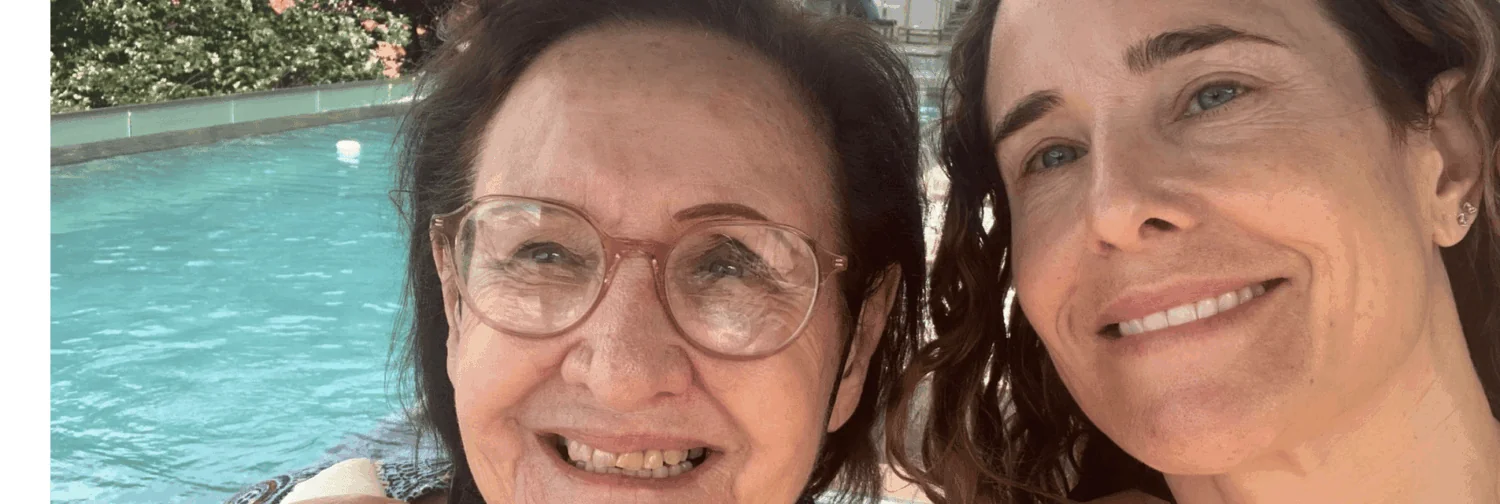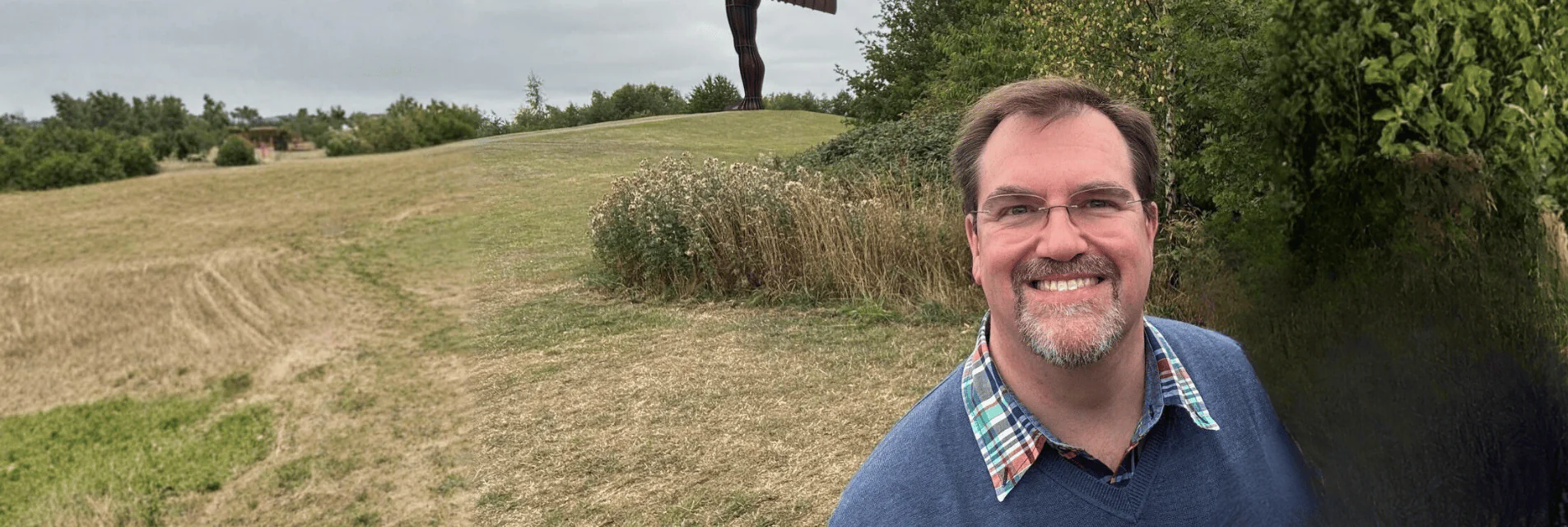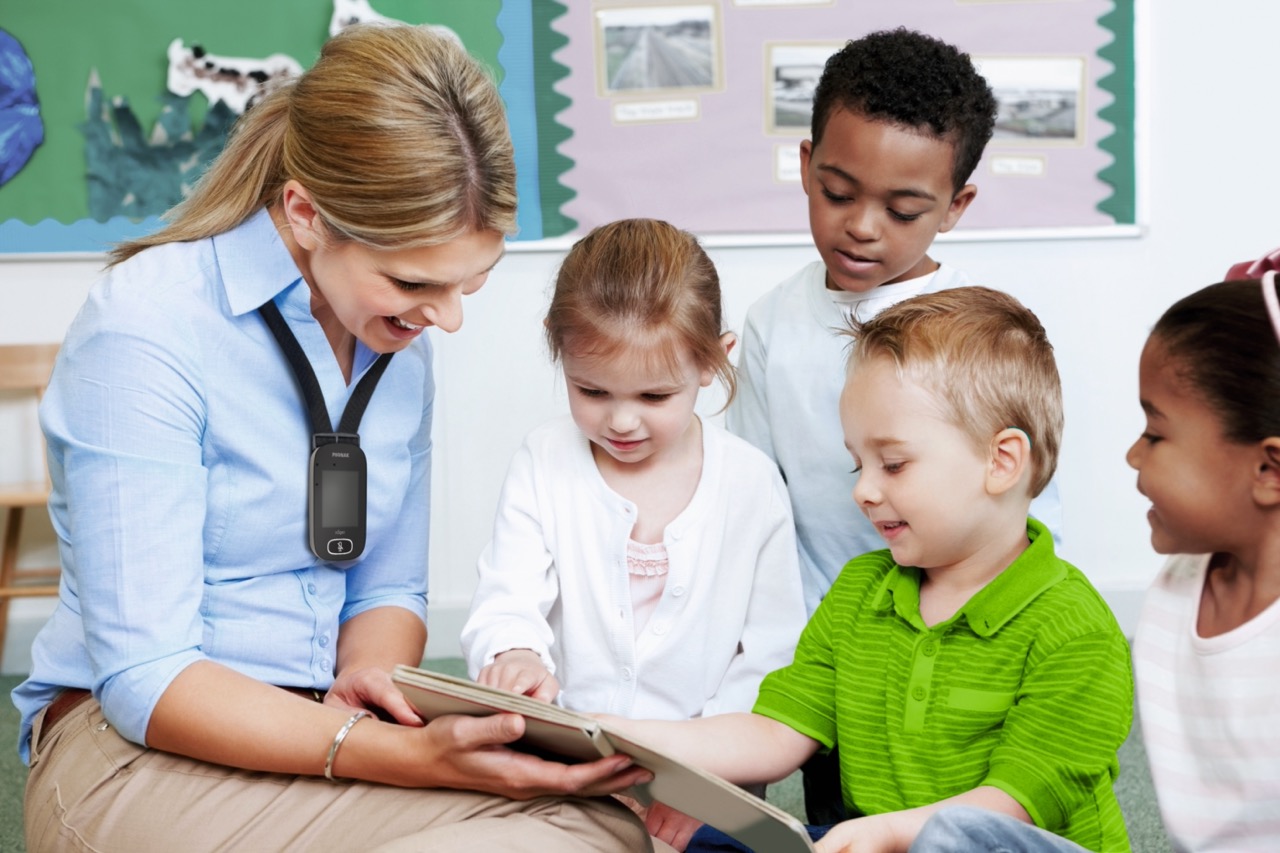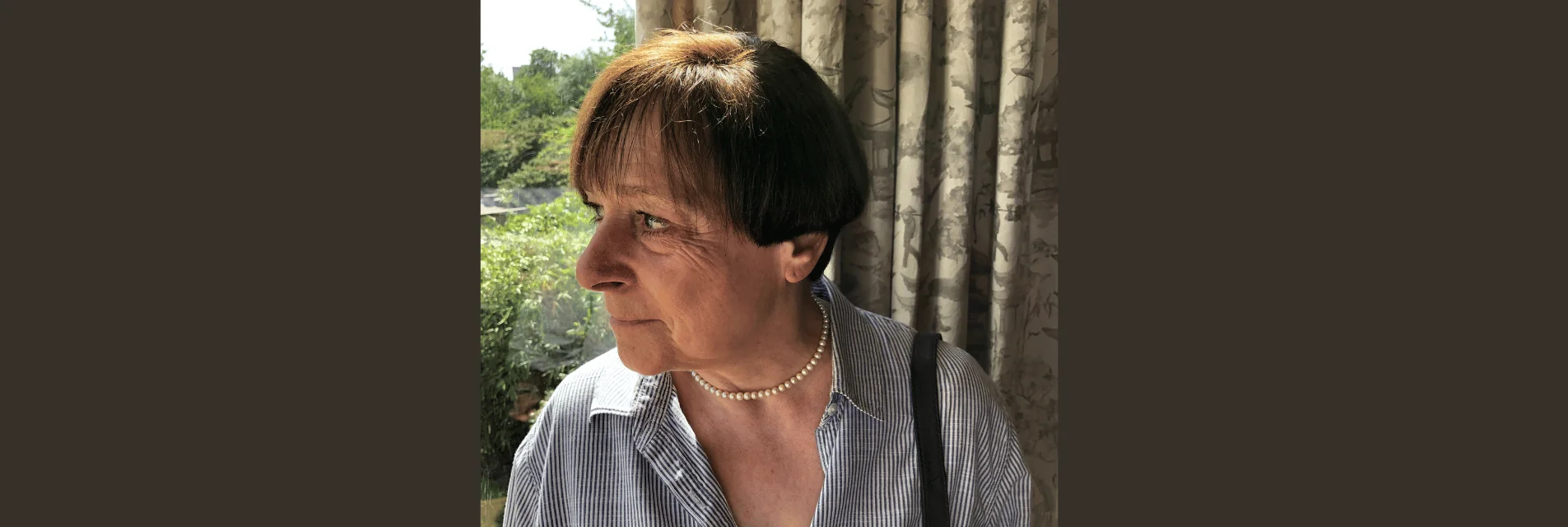Karen grew up surrounded by hearing loss from a very young age. “Both my living grandmothers were severely deaf — as kids, my siblings and I even called them ‘deaf’!” she recalls. One of her earliest memories is of her mum gently explaining that she had to talk louder to her grandmothers.
After her maternal grandmother suffered a devastating stroke that left her paralysed and unable to speak, read or write, she came to live with the family. “She stayed with us for eight years until her passing,” Karen shares. During her teenage years, she learned to communicate with her grandmother, while at the same time witnessing her own mum’s hearing steadily deteriorate. Over the next two decades, her mum became severely hearing impaired too.
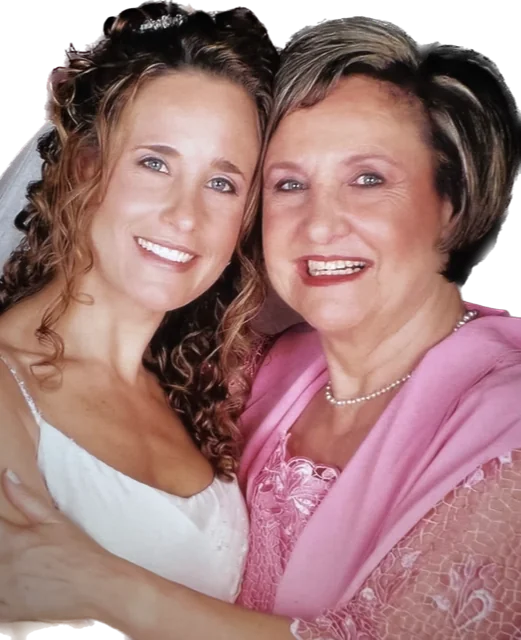
Karen Mann and her mum Elaine
Choosing a Career in Speech and Hearing
Karen believes these deeply personal encounters with hearing loss — and her grandmother’s stroke — sparked her fascination with all things brain-related. This ultimately led her to study Speech Pathology and Audiology at university and specialise in neuro-rehabilitation.
It was during routine hearing screening practice at university that Karen first discovered her own hearing loss. “I had drops in various frequencies across my audiogram. I wasn’t ready to accept it, so I chose denial and avoidance as my go-to strategies.”
Struggling at Work
Years later, while working as a speech therapist in a busy teaching hospital, things became harder. “I became anxious about mishearing the doctors and team during ward rounds,” she says. “I would concentrate with all my might to hang on to the words being spoken.” She began arriving early to meetings to sit close to key team members, determined to contribute and respond — but by now she knew she was following in the footsteps of her mum and grandmothers.
Getting Diagnosed
At the age of 44, Karen went for her first official audiology assessment. By then, feedback from her family and friends made denial impossible. The diagnosis was congenital hearing loss, particularly affecting lower frequencies. “It was time to get help.”
Finding the Right Hearing Aids
After researching online, Karen chose Harley Street Hearing. At first, she felt embarrassed to wear hearing aids and decided to trial the invisible Lyric devices. “Despite their incredible sound quality, they weren’t suitable for me due to the nature of my petite ear canals.” Next Paul Checkley – audiologist and partner at Harley Street Hearing, trialled bespoke in-the-ear aids before finally finding her perfect match — high-tech Oticon behind-the-ear hearing aids. “I have never looked back.”
Life Transformed
Karen says her hearing aids have been life-changing. “I can hear much clearer and louder, and I can adjust the settings on my phone when I’m in noisy or lecture settings. The hugest plus is how they connect to my iPhone, iPad and TV — I can hear calls, music, Netflix and audiobooks clearer than ever before. In nature I can hear the wind in the trees and the birds sing. Having the right hearing aids has given me back so much pleasure and confidence.”
She has also learned to be open about her hearing loss. “I usually explain to people I have a hearing loss so they understand if there’s a communication breakdown. It’s better than being seen as dim or socially inept by not answering their questions or guessing and missing the mark.”
Communication is a Two-Way Street
At home, Karen has worked with her partner and children to support her hearing needs. “A simple rule with my two teenagers is: don’t bother shouting to me from another room — please come and talk face to face, or text or call me.” These small changes have made a big difference.
Encouraging Others
Over the past few years, many people have been surprised when Karen shares her hearing challenges. “They often say they didn’t realise I was wearing hearing aids as they are so subtle and discreet. This has inspired several people to get tested themselves. The hardest part is acknowledging our own challenges and taking that first step — but there is plenty of room for improvement.”
If you’d like to find out more about hearing aids to suit your specific needs please call us on 020 7486 1053 or complete our contact form.
